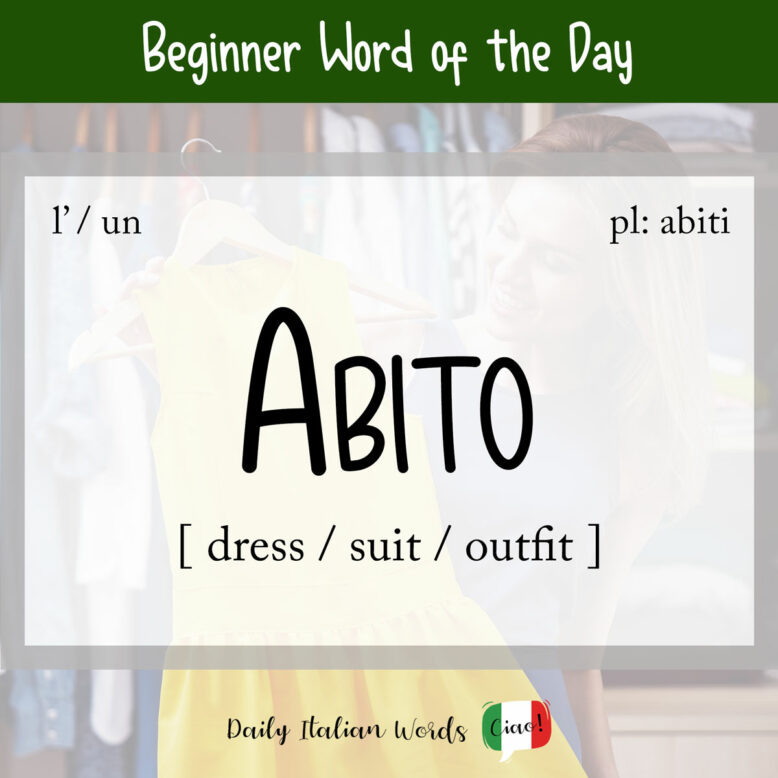In Italian, the word abito is used to denote any specific kind of garment worn over underwear, be that a gown, dress, suit or outfit. It derives from the Latin habitus, meaning demeanour or appearance.

Because it is a masculine word beginning with a, it takes the following definite and indefinite articles:
- l’abito = the dress / suit / gown
- gli abiti = the dresses / suits / gowns
- un abito = a dress / suit / gown
- (degli) abiti = (some) dresses / suits / gowns
Mi piacciono molto gli abiti in questo negozio.
I really like the suits / dresses in this shop.
At this point, I can hear you asking: what is the difference between vestito and abito? In truth, they can be considered synonyms, with the exception that vestito is mostly used in colloquial situations, while abito is heard in more formal contexts.
Imagine that you are at black-tie event surrounded by people in expensive suits and fancy gowns. The only natural way to describe their clothing is to use the word abiti, not vestiti, due to the formality of the situation. In an informal or familiar context, such as a husband asking his wife’s advice about what he should wear however, that same suit or dress would be called a vestito. Although the outfit itself doesn’t change, the nature of the communicative context does.

As for the plural vestiti, it is used generically to refer to clothes, whereas abiti means “more than one suit/outfit/dress”.
Some common types of abiti include:
- abito da sera = evening wear
- abito da sposa = wedding dress / bridal gown
- abito da lavoro = work clothes
- abito estivo = summer wear
- abito della domenica = one’s Sunday best
- abito religioso = habit
- abito militare = military uniform
Note that abito can also mean habit, custom or inclination in a figurative sense.
È difficile cambiare gli abiti mentali.
It’s difficult to change one’s mental habits.
Let’s end this article with a common idiomatic expression in Italian l’abito non fa il monaco, which literally translates to “the habit doesn’t make the monk” but in English terms can be interpreted as “you can’t judge a book by its cover”.
Heather Broster is a graduate with honours in linguistics from the University of Western Ontario. She is an aspiring polyglot, proficient in English and Italian, as well as Japanese, Welsh, and French to varying degrees of fluency. Originally from Toronto, Heather has resided in various countries, notably Italy for a period of six years. Her primary focus lies in the fields of language acquisition, education, and bilingual instruction.


